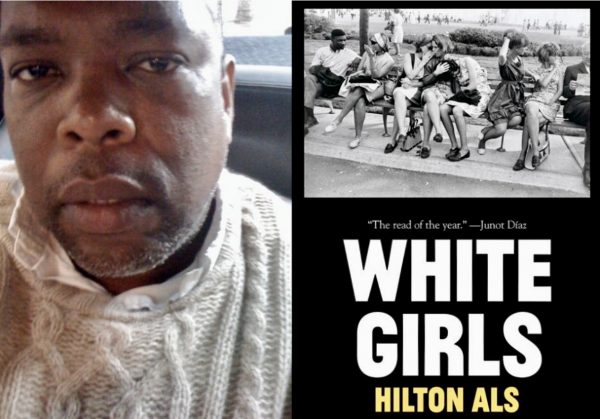News
LA Pride arrives but #ResistMarch is all the buzz
Massive Intersectional march reclaims Pride


#ResistMarch will replace this years Pride Parade. (Image courtesy #ResistMarch)
The Resistance is ready for its close-up and Hollywood Boulevard may never be the same.
“I came to see the awakening of the political culture of LGBT life in LA,” says Dan Davidson, 58, who flew in just for #ResistMarch from a small town near the Smoky Mountains of East Tennessee.
Davidson is not unlike the many thousands of other people — from literally everywhere — who will descend on Hollywood Boulevard, Sunday June 11 for the #ResistMarch.
“I’m not here just to stand up to Donald Trump but also because this really is historic; for me it’s not entirely about him. It’s about coming to a city I once called home and being surrounded by like minded people, a break from all the conservative madness that has taken over my home state,” he says. “I came in need of the righteous anger of the many folks who have had their world thrown upside down. I’m standing up for basic dignity and our civil rights because if we don’t they are ready to take apart every bit of progress we have made.”
Julia Winston is a teacher from Waco, Texas. She’s flying in on Saturday, she hopes, to “be part of history. Our lives really do depend on standing up to this political nightmare.” The 32 year old lesbian single mom is flying stand-by and can only get on a flight if there are available seats. “I’m actually going to start trying to leave Dallas on Thursday night, just in case the flights are full. I don’t care if it takes days,” she said.
Winton says “When I was 21, my Dad died of AIDS. Before he died he told me to stand up for myself. If he was alive today, I am sure he’d be there. I’m marching for him. For a time he received his medication through a drug assistance programs and the government literally helped him live. He never had insurance because no one would give it to him. These people would see my father dead in the streets. They’d be willing to see the kids I teach starve. Sink or swim.”
Allen Roskoff lives in Manhattan. He “thinks it is important that, as a New Yorker, I show solidarity with my LA sisters and brothers.”
Roskoff plugged away for 15 years on passage of a gay rights bill that he authored in 1971, the nation’s first such bill to be introduced; the bill finally passed New York City Council in 1986.
He says that “after suffering discrimination and violence, after losing hundreds of friends to AIDS and fighting for basic dignity and healthcare, we accomplished so much and have seen so much progress. We fought and achieved marriage equality and a significant expansion of our rights. To now see it all at great risk — we must all unite to resist! We have to wake up.”

Remember their names: Stanley Almodovar III, 23, Amanda L. Alvear, 25, Oscar A. Aracena Montero, 26, Rodolfo Ayala Ayala, 33, Antonio Davon Brown, 29, Darryl Roman Burt II, 29, Angel Candelario-Padro, 28, Juan Chavez Martinez, 25, Luis Daniel Conde, 39, Cory James Connell, 21, Tevin Eugene Crosby, 25, Deonka Deidra Drayton, 32, Simón Adrian Carrillo Fernández, 31, Leroy Valentin Fernandez, 25, Mercedez Marisol Flores, 26, Peter Ommy Gonzalez Cruz, 22, Juan Ramon Guerrero, 22, Paul Terrell Henry, 41, Frank Hernandez, 27, Miguel Angel Honorato, 30, Javier Jorge Reyes, 40, Jason Benjamin Josaphat, 19, Eddie Jamoldroy Justice, 30, Anthony Luis Laureano Disla, 25, Christopher Andrew Leinonen, 32, Alejandro Barrios Martinez, 21, Brenda Marquez McCool, 49, Gilberto R. Silva Menendez, 25, Kimberly Jean Morris, 37, Akyra Monet Murray, 18, Luis Omar Ocasio Capo, 20, Geraldo A. Ortiz Jimenez, 25, Eric Ivan Ortiz-Rivera, 36, Joel Rayon Paniagua, 32, Jean Carlos Mendez Perez, 35, Enrique L. Rios, Jr., 25, Jean Carlos Nieves Rodríguez, 27, Xavier Emmanuel Serrano-Rosado, 35, Christopher Joseph Sanfeliz, 24, Yilmary Rodríguez Solivan, 24, Edward Sotomayor Jr., 34, Shane Evan Tomlinson, 33, Martin Benitez Torres, 33, Jonathan A. Camuy Vega, 24, Juan Pablo Rivera Velázquez, 37, Luis Sergio Vielma, 22, Franky Jimmy DeJesus Velázquez, 50, Luis Daniel Wilson-Leon, 37, Jerald Arthur Wright, 31.
Billy Pace, who lived blocks from Pulse Nightclub in Orlando at the time of the shooting and who has recently relocated to Los Angeles, says “the resist march is an emancipation of sorts from the complacency that lulled us into believing we had come farther than we thought.”
The award winning song-writer (Celine Dione, “Titanic”) says #ResistMarch is a chance to “take back our destiny as opposed to giving our lives over to the hands of those who are casually robbing us.”
“We are taking hold of our future proudly and unapologetically,” he said. “It is our time.”
Angeleno Hazel Jade Prejean, a 19 year old transgender woman, told The Los Angeles Blade she is marching because, “this year so far we’ve already had 11 trans women who have been murdered and one black trans man. It’s important that we stand up and stand in unity but also let our black queer youth and queer youth of color, as well as our white brothers and sisters across the nation know that they are not alone and that this country allows them to be visible.”
Lauren Meister, 57, is a former Mayor of West Hollywood who continues to serve as a City Council member says she will attend #ResistMarch because “we cannot allow the politics du jour to eradicate the many years of countless people’s efforts to achieve equality. We cannot stand idly by as our own government attacks our rights or those of our family members, neighbors, friends, or co-workers.”
Lauren, who is an ally, was deeply inspired by the events of June 11, 2016.
“When the Pulse nightclub shootings happened last June in Orlando, we (West Hollywood) chose to still move forward with the Pride parade — even though we were shocked and scared and mourning. This year, because waving flags on floats is not enough, we will march together, a united LGBTQ community and its allies, and we will once again show the world what pride looks like,” she said.
Bao Nguyen, 37, is the former Mayor of Garden Grove and says he will attend the #ResistMarch because “for me, it’s an expression of my deep gratitude to those who’ve paved the way by continuing the fight for justice for all.”
Nguyen makes the point that “our resistance is itself a celebration that recognizes how far we’ve come while seeing the long road ahead.”
Kit Winter, 52, a Los Angeles lawyer who lives in Silver Lake, says “I came out in 1983. In 1986, as gay men were dying in staggering numbers, the Supreme Court decided in Bowers v Hardwick that the Constitution permitted imposing criminal penalties for consensual gay sex. I remember traveling from New Haven to New York to protest the decision; by the time the march petered out down by Battery Park, people were throwing beer bottles at us and calling us faggots,” he recalls.
“We’ve come a long way since then,” says Winter, “but progress is easily lost —and civilization is a thin veneer over the darkness that lies inside many people. We’re seeing that darkness emerge more and more under Trump. If we are to have any hope of keeping the progress we’ve made, we have to #resist.”
Alexandra Grey, 26, an actress and musician who lives in Los Angeles, says she will be at #ResistMarch “because nothing changes unless we all stand together. I’m going because my life is at risk.”
Gray, who is transgender, says “these causes mean so much because, like any major plight in history, the people have to stand together and fight to be seen and to be heard.”
Jeremy Kinser says attending the march is his duty. “I’m joining many friends who haven’t attended a Pride celebration in several years but this year we’ll all walk together in unity because it’s the most important, urgent event since the “No on Prop 8” demonstrations in 2008.”
Kinser finds it disheartening that we are at this juncture and says, “I honestly can’t believe we’re still having to fight for our basic civil rights. We advanced so far during the eight years of Obama’s administration and now, almost inconceivably, we stand to lose so much under the current president, who didn’t even have the decency to issue a Pride proclamation and who made us invisible in the latest Census Bureau survey.”
He adds, “This weekend we will prove to them that we are a powerful and vital part of this country and we won’t be vanquished back into the closet.”
 On Sunday, June 11, the #ResistMarch will bring these people and tens of thousand more, from all walks of life, together for a peaceful protest march that will begin at the intersection of Hollywood Blvd. & Highland Ave. in Los Angeles. The march will conclude at the intersection of Santa Monica Blvd. and La Peer Dr. in West Hollywood.
On Sunday, June 11, the #ResistMarch will bring these people and tens of thousand more, from all walks of life, together for a peaceful protest march that will begin at the intersection of Hollywood Blvd. & Highland Ave. in Los Angeles. The march will conclude at the intersection of Santa Monica Blvd. and La Peer Dr. in West Hollywood.
“This year the LGBTQ+ community is lending its iconic rainbow flag to anyone who feels their rights are at risk and to everyone who believes that America’s strength is its diversity.” said Brian Pendleton, Founder of #ResistMarch.
“When they come for one of us,” he said, “they come for all of us. Which is why we our diverse intersectional community must unite as one.”
Intersectionality may just be the most important — perhaps even historic — aspect of this march.
More than 100 partner organizations have committed their support to the #ResistMarch, representing a full rainbow spectrum of civil rights in America, including GLAAD, Planned Parenthood, Black Lives Matters, the ACLU, Los Angeles County Federation of Labor, the Human Rights Campaign, AIDS Project Los Angeles, Bienestar, the City of West Hollywood, among others.
“GLAAD is proud to support the #ResistMarch on June 11th. In a time when LGBTQ people are being erased, it is now more important than ever that we stand in solidarity,” said Sarah Kate Ellis, President & CEO of GLAAD.
Sue Dunlop, President & CEO of Planned Parenthood Los Angeles, noted, “On June 11th, we will join the #ResistMarch in support of fundamental civil and human rights for all people, everywhere.”
John D’Amico, Councilmember proclaimed “The shoulders we stand on are broad and strong. And have carried us here. The #ResistMarch is showing up for yourself and your rights. The #ResistMarch is peace and protest and pleasure and passion and people. The #ResistMarch is authentic. The #ResistMarch is who we are.”
#ResistMarch will begin after a brief opening ceremony with speakers in Hollywood and at the end of the march route. A rally will be held that will include a wide array of speakers, politicians and entertainers.
Speakers will include U.S. House Democratic Leader Nancy Pelosi, U.S. Congressman Adam Schiff, U.S. Congresswoman Maxine Waters, U.S. Congressman Ted Lieu, California, Los Angeles Councilman Mitch O’Farrell, Los Angeles Councilman David Ryu, West Hollywood Mayor John Heilman, Trans Activist Bamby Salcedo, AIDS Activist Phil Wilson, #ResistMarch Founder Brian Pendleton, HRC President Chad Griffin, Haim, Margaret Cho, RuPaul, Adam Lambert, Jussie Smollett, Cheyenne Jackson, The Gay Men’s Chorus Of Los Angeles, The Trans Chorus of Los Angeles, America Ferrera, Black Lives Matter’s Dr. Melina Abdullah, NALEO National Chairman John Duran, Planned Parenthood’s Sue Dunlap, Los Angeles LGBT Center’s Lorri Jean, Women’s March L.A. Founder Emi Guereca and others.

Reverend Troy Perry and his husband Phillip Ray De Blieck were recently honored by Raul Castro’s daughter, Mariela Castro, for their lifelong commitment to LGBT rights. (Photo courtesy March against Homophobia and Transphobia)
In a recent article in The Los Angeles Blade, Troy Perry‘s pathbreaking work on behalf of the LGBT community, including the historic journey he led across Hollywood Boulevard in 1969, was explored. The #ResistMarch returns the LGBT community to that place and in the same spirit of the founding gathering.
“In 1969, with signs declaring ‘we’re not afraid anymore,’ Perry led a nighttime march down Hollywood Boulevard calling for the end to sodomy laws and a small picket protesting anti-gay job discrimination, where he met Mattachine Society founder Harry Hay and his lover John Burnside and had no idea who they were. In January 1970, he sat in at the counter of Barney’s Beanery in West Hollywood, demanding that the owner take down his ‘Fagots Stay Out’ sign above the bar. He also led hundreds of marchers demanding police reform.
On March 9, 1970, Perry led 120 marchers to rally behind the pre-bathhouse Dover Hotel in downtown LA to commemorate the one-year anniversary of Howard Efland, who had been beaten to death by two LAPD officers. He attended the inquest and heard the police explain that one of the officers had “fallen” on Efland, rupturing his spleen and that the broken bones and cuts were a result of him having fallen out of the police car, not being dragged feet first down three flights of stairs after having been beaten up and then kicked. “There were two eyewitnesses,” Perry says. ‘The City Attorney asked the first one, a drag queen wearing female clothes, “are you a homosexual?” She answered, “Yes,” and the eyes of the jurors closed. They didn’t want to hear any more.”
And so we return to our roots.
Just as in the first LGBT march and parade in the 1970’s, organizers say “we are going to march in unity with those who believe that America’s strength is its diversity. Not just LGBTQ+ people but all Americans and dreamers will be wrapped in the Rainbow Flag and our unique, diverse, intersectional voices will come together in one harmonized proclamation. We #Resist the efforts to divide us!”
More information about the #ResistMarch can be found at www.resistmarch.org.
California Politics
“I’ve always been an ally.” Seven gubernatorial candidates discuss LGBTQ+ rights at recent forum
Read what seven Democratic candidates running for governor said about how they would support queer Californians.

On Monday evening, seven Democratic candidates running for California governor walked into a packed auditorium in front of the county’s most prominent LGBTQ+ communities. In a forum co-presented by civil rights organization Equality California and the local queer nonprofit Los Angeles LGBT Center, each candidate tried to convince the crowd why they are the best choice for LGBTQ+ Californians.
The candidates present were: former California Attorney General and U.S. Secretary of Health and Human Services Xavier Becerra, former Congresswoman Katie Porter, Congressman Eric Swalwell, billionaire entrepreneur and environmentalist Tom Steyer, California State Superintendent of Public Instruction Tony Thurmond, former L.A. mayor and Speaker of the California State Assembly Antonio Villaraigosa, and former California State Controller Betty Yee.
Swalwell, Steyer, and Porter are top contenders, according to a recent statewide survey conducted by the Public Policy Institute of California. 30% of the survey’s voters are split between other candidates, including Villaraigosa, Yee, Thurmond, and Becerra.
Political analysts and reporters are stumped; it’s difficult to parse out a clear frontrunner at this moment. As we head towards a primary election in June, community offerings like Monday’s forum allow constituents, including those who are LGBTQ+, decide which candidate is most likely to fulfill their promise of defending queer rights.
The Blade gathered notable quotes from each candidate in regards to LGBTQ+ issues. Passages have been edited for clarity.
How has each candidate stood with LGBTQ+ communities?
Each candidate was individually called up to the stage and given about 13 minutes to answer the same set of questions. A forum rather than a debate, the evening allowed each person to discuss their past work with LGBTQ+ communities as well as their perspectives on transgender health care, LGBTQ+ youth, homelessness, and the war in Iran.
The first question of the evening was definitive. NBC4 anchor Colleen Williams, the forum’s co-moderator, asked candidates to give themselves a letter grade to define their past work with LGBTQ+ communities.
Xavier Becerra
“I have been an ally. Equality California has recognized that twice. But I go further back than that. There was a time in the 1990’s where two individuals who loved each other couldn’t get married if they were the same sex. There was a law that passed in Congress, called the ‘Defense of Marriage Act.’ 67 members out of 435 voted ‘no’ against that discriminatory law. I was one of them.
I will never put a vote down or take an action that would discriminate against someone else. That’s why I’ve taken action year over year, whether it was as Attorney General when I defended the ability of our LGBTQ community to have access to affordable care under the ACA [or] as Secretary of HHS. When it [came] to gender affirming care, it’s not what the politicians in Congress say: it’s what the medical and scientific experts say is the best health for every American.
I have a history that runs longer than anyone who’s running for governor in talking about how I’ve been a true and enduring ally of the LGBTQ+ community.”
Katie Porter
“I’m a professor, and I’m a pretty notoriously tough grader. I don’t really believe in A-pluses, because I think there is always work to be done. But I would give myself an A, and I feel proud of the way that I’ve fought alongside the LGBTQ+ community, the way that I have represented those that I was fortunate enough to represent in Orange County, and to do that in an area that has historically been very, very hostile to the gay community.
I’m so very proud to have flipped the seat and to have been bold in voting for the Equality Act, in calling out Republicans for trying to attack LGBTQ families and limit their ability to adopt, for example. What would I do differently as governor? I think that starts with recognizing that we are not at a place of full equality. It is a journey, and we are not at our destination, and that is particularly true for transgender people. They are still facing discrimination in health care, housing, and employment in so many other areas. So I think that’s something I would really want to focus on, is recognizing that within the coalition, within the LGBTQ+ community, we have real work to do, particularly for those who are facing the most challenges.”
Eric Swalwell
“I’ve been in Congress for 14 years. So, you get as a future governor someone who’s been in the arena and someone who has been on record, and my record with the Human Rights Campaign has been 100%, and I’m proud of that. I’ve always been an ally. I always will be an ally, but there’s a lot more for me to learn. [There’s] always room for improvement, but [I have] a 14-year record of working on these issues and 100% of the time being with the community.”
Tom Steyer
“I don’t think my grade for myself is the way to think about it. I think the LGBTQ community’s grade is the one that counts. And I have worked actually very closely over the years with Equality California. And in fact, the former executive director of Equality California, Rick Zbur has endorsed me. I mean, we’re friends, but we’ve done so much work together through this organization. So for me, my question is going to always be: What are the people in the community think about what I’m trying to do? Does it have real impact in terms of doing a better job as governor? You have an ability to have immense impact on this community and in general.
To me, the question is going to be to make sure that this is a priority that is incredibly high because of what’s at risk. What’s the cost of not coming through for this community? Very, very, very high.”
Tony Thurmond
“As the State Superintendent of Schools, I sponsored the legislation to establish gender neutral bathrooms in our schools in California. I sponsored the legislation to ban any banning of curricula that would block the contributions of LGBTQ Californians to our great state, and I sponsored the legislation that made the law the Safety Act that says we don’t do forced outings in the state of California.
And as governor, I will continue to support our LGBTQ+ community: to support the right for health care, including gender affirming care, to make sure that there are health care resources, [and] that we address discrimination in housing. As we speak right now, I’m sponsoring legislation that would provide subsidized housing to minors who are homeless. In our state, there are 10,000 homeless youth in our state who are on their own under the age of 18. And as many of you know, our young people [who are homeless] are oftentimes disproportionately LGBTQ+.
As [for] a grade, I’ll say I’m a work in progress, because I’m hungry to do more. I think that more needs to be done. I’m not here to rest on laurels. As a governor, I’m going to fight back on the Trump administration in the same way that I’ve done to pass legislation that says ICE has no place in our schools [and] in our hospitals. We are under attack, but we’re going to fight back, and as your governor, I’m going to help lead that attack against Trump in this reckless administration.”
Antonio Villaraigosa
“A+. I started in the beginning. I was doing this. When I was Speaker of the California State Assembly, I was chair of this budget subcommittee that dealt with the AIDS formulary. I took on Pete Wilson, [who] had pushed back constantly on that formulary, and we won. [And the] first anti-discrimination bill in housing and employment. We’d been working on it for 30 years. I authored it. I joined [what was then the] Gay and Lesbian Caucus at the time. I authored, with Carole Migden, the first domestic partnership bill.
Then, when I was mayor, I led Mayors for Equality. When I was chairman of the convention, the first thing they asked me in 2012 was my position on gay marriage. I said: ‘You know it. I’ve been strongly for it since 1994.’ Obama’s people got upset with me because I was the chair of the convention, and I said it should be on the platform. I was the first person in the country to take out transgender females [and] separate them in the men’s jail.
So, what would I do to continue the A+? Continue to be at the forefront of fighting for LGBTQ rights.”
Betty Yee
“I would give myself an A. I’ve been a lifelong ally to this community. Being from San Francisco, I have really seen the emergence of this community to where we are today. I think in terms of any room for improvement, it’s because we are under attack, and so we’re going to have to double down in terms of the advocacy, the ways that we stand up for our communities and the way we protect each other. I know that as the next governor — that is going to be the first order of business. California does not take lightly that our rights and protections are being taken away from all of our communities, so we have to continue to be the beacon of hope for so many.”
Transgender health: how would the candidates protect gender-affirming care as the federal administration tries to shut down these essential services?
Candidates were asked about the current state of gender-affirming care for transgender people and youth, which continues to be threatened and shuttered by the administration. Last year, Children’s Hospital Los Angeles closed its Center for Transyouth Health and Development as well as its Gender Affirming Care surgical program. Amidst rampant protest, federal efforts targeting these programs continue to grow.
The forum’s next question was: How would candidates handle this gap in gender-affirming care? Would they enforce state law that states that gender-affirming care should be offered, on the grounds of anti-discriminatory practices? How would they enforce this if federal funds are withheld?
Xavier Becerra
“First, we would not take a knee to Donald Trump. Secondly, we would enforce and you’re hearing that from the voice of a former enforcer: the former Attorney General for the state of California. Third, I will tell you, as the former Secretary of Health and Human Services, that the medical experts [and] societies that have done the research and have done the work and the studies, are the ones that should guide the care that we provide to all Americans, including our children.
They have said that gender affirming care, including for our children, is not only supportive of good health, it also provides for a good life. As Governor, I will enforce the laws. I will not discriminate, and I will be an ally for those who need access to the kind of care that lets you live a thorough life. Remember, today we have 10 year olds who are contemplating suicide, and too often you find so many of those youth in our LGBTQ community. That’s because they don’t feel like they are heard, and we need to make sure we are there.”
Katie Porter
“I’ve had conversations with some of our largest health care providers in the state about this. It is a really big concern. I’ve heard about it directly from parents and from affected youth. I think we need to be very clear about what’s at stake here. This is a health care issue, and we are fighting for health care.
We have seen women’s health care under attack not very many years ago, and by the way, coming again under the Trump administration. I think the answer to what I would do is: we need to provide state funding for this. I believe that what the legislature is fighting for, which is $26 million in order to provide a state-only medical pathway [to] make sure that we are not putting our institutions in a choice between losing their funding, which provides health care for lots of Californians, and having to provide appropriate medical care for every single kid in California, including gender affirming care.
That $26 million, I want to be very, very clear: it sounds like a big number. It’s less than [what] one of my opponents spent on TV ads in the last couple months. It is a number that we can fund. We are the world’s fourth largest economy. We should be able to provide health care for every single California kid, including gender affirming care.”
Eric Swalwell
“This President has declared war on the health care of our kids, with gender affirming care. Troops are in our streets. Women are being dragged by their hair and thrown into unmarked vans. Advocates of the most vulnerable in our community are publicly being executed. We need a fighter protector in Sacramento, and that’s the experience I offer as the son of a cop, as a prosecutor for seven years in Oakland, who led the hate crimes unit in Alameda County, but also someone for the last 10 years as the worst, cruelest, most incompetent person ever has been President of the United States, I was with Adam Schiff in the Russia investigation. I was a part of both impeachments. I have the only lawsuit that has survived this new presidency. I know you have to go on offense, otherwise the most vulnerable are on defense.
But it’s my job also to find as much revenue as possible to backfill what you just described. There’s a real opportunity not to get it all back, but to leverage being in the majority, being the fourth largest economy in the world and the might that we have in the congressional delegation, adding five more seats with the work we’re going to do for Prop 50 to get back as much as possible on day one.”
Tom Steyer
“I would, and I’ll tell you why. It goes back to my relationship and experience with Rick Zbur, because he made sure that I knew transgender people, that I got a chance to talk to them, and I got information on that community a long time ago. What I learned was how much risk they’re at, especially transgender youth. I think when I first learned about it, the percentage of transgender youth who tried to kill themselves was 50 percent. The last statistic I’ve seen more recently is 39 percent. When I said priorities: what is the risk if you don’t do it? And the answer is, the risk is really, really, really high. To me, that’s a risk that is unbearable as a state. And therefore I would insist on enforcing those laws, and I would insist on that care.”
Tony Thurmond
“I would enforce that law, and as governor, I intend to implement a single payer health care system, and build into that an understanding that we provide gender affirming care and to continue to lift up the principles of gender affirming care in our state. I’ve spoken out already as a UC Regent, because there are some hospitals in the regent system that try not to provide care, and as governor, I’ll continue to make that a priority.”
Antonio Villaraigosa
“Yes, I would enforce state law because it is discrimination, number one. And it’s not just LA Children’s Hospital. I think San Diego just did the same thing. We’ll backfill. The state will backfill that money that the feds have taken out. It is discrimination, pure and simple.”
Betty Yee
“Absolutely. I think that’s what we have to stand on, and we have to strengthen those laws to be sure that they are being enforced. And also look at our regulatory agencies to be sure that our providers are exactly following state law. Look, we are really the leader in all of this. And I am very, very saddened to know that here in California we have providers that feel like they can step away from this requirement. And I certainly want to bring that back full focus to be sure that no one [who needs it] is going without gender affirming care.”
To hear the other topics discussed, exclusive livestream partners NBCLA and Telemundo 52 have uploaded the full forum on their respective channels. Click the hyperlinks to view.
Kristie Song is a California Local News Fellow placed with the Los Angeles Blade. The California Local News Fellowship is a state-funded initiative to support and strengthen local news reporting. Learn more about it at fellowships.journalism.berkeley.edu/cafellows.
California
Equality California has sponsored 12 bills to advance LGBTQ+ rights in the state
On Feb. 27, the LGBTQ+ civil rights organization announced its 2026 legislative priorities, which cover trans healthcare and queer education.

Nationally, queer and trans people are facing a crisis. Last July, the Trump administration defunded the 988 suicide prevention lifeline for LGBTQ+ youth. Anti-trans hate crimes are on the rise, specifically those targeting Black and brown trans women. Just last week, trans people living in Kansas who had changed their gender designations in the past received abrupt letters stating that their driver’s licenses were no longer valid.
Federal and statewide legislation is targeting LGBTQ+ rights, creating a social landscape that is reverting to sanctioned violence against these communities. In response, LGBTQ+ civil rights organization Equality California has sponsored 12 new bills that are fighting to strengthen queer people’s rights, safety, and sense of stability.
This means “being able to access health care, live free from discrimination, gather safely, and trust that our personal information will not be weaponized against us,” said Equality California’s executive director, Tony Hoang, in a press release. Hoang also states that these bills offer Governor Newsom an “opportunity to define real leadership” and set himself and the state apart from the proliferation of anti-LGBTQ+ rhetoric amongst the most politically elite.
What are the bills and what would they do?
The 12 priority bills Equality California has sponsored span various areas, from healthcare to the criminal justice system and from schools to emergency hotlines.
AB 1876 (Dawn Addis): Protecting transgender patients from discrimination
Introduced on Feb. 12, AB 1876 would prohibit health insurers and plans from discriminating against people based on sexual orientation, gender identity, or sex characteristics. This would help advance the rights of trans, gender diverse/expansive, and intersex (TGI) people across California, allowing them greater accessibility when seeking the healthcare they need.
AB 1930 (Rick Zbur): Protecting transgender patient privacy from out-of-state investigations
Introduced on Feb. 13, this bill was written by Assemblymember and former Equality California executive director Rick Zbur. It focuses on protecting transgender patients who have received gender-affirming care, abortions, or any other form of trans health care in California. AB 1930 will place greater protections on confidential, private medical information, barring out-of-state agencies from readily obtaining these records and using them against trans people.
SB 1114 (Christopher Cabaldon): Protecting LGBTQ+ data privacy
California-based agencies continue to champion research on LGBTQ+ communities, collecting data related to gender and sexual identity. However, there are concerns that federal officials will try to surveil, shut down, or extract this data. SB 1114 would counter this by limiting when state agencies can share this sensitive data and barring the disclosure of such data outside of California.
AB 1540 (Mark González): Restoring the youth crisis support hotline
Since last year, after the administration ended the 988 Suicide and Crisis Lifeline’s specialized services for queer youth, L.A. officials have been advocating for its revitalization. AB 1540 was introduced this January by prominent LGBTQ+ Assemblymember Mark González, and the bill calls for the restoration of the “Press 3” option for queer youth struggling with their mental health. Many have lauded the service’s necessity, urging officials to recognize and take action to address the broader mental health crisis of young LGBTQ+ people across the country.
SB 934 (Scott Weiner): Advocating for conversion therapy survivors
SB 934 aims to extend the statute of limitations so conversion therapy survivors can pursue legal claims against licensed mental health professionals who have subjected them to conversion therapy practices.
In other states, victories against conversion therapy have taken a step backwards. In 2023, conversion therapy was legally banned, to prevent the “horrific practice” from continuing to harm LGBTQ+ youth. This past December, the ban was blocked, on the grounds that it violated First amendment rights for therapists and counselors — even if they engaged in the practice.
AB 1775 (Chris Ward) — Supporting transgender veterans
In January 2025, the Trump administration issued an executive order that barred trans people from serving in the military, stating that the forces had been “afflicted with radical gender ideology.” As a result, tens of thousands of active-duty service members, veterans, and their family members were abruptly cut off from a steady income, putting them at risk of homelessness and financial instability. AB 1775 will make sure trans veterans impacted by the executive order can access housing assistance, employment support, and be able to correct their military orders.
AB 1836 (Jesse Gabriel): Protecting safety of LGBTQ+ community events
This bill intends to expand the state’s Nonprofit Security Grant Program so that organizations can access funding for security efforts when hosting LGBTQ+ community events. Currently, the grant program provides funding for LGBTQ+ community centers and nonprofit facilities, but does not cover off-site events. For queer people celebrating their joy in public, which can be its own act of resistance, the possibility of retaliation leaves in many a remnant of fear and apprehension. This bill combats these fears by creating funding opportunities to ensure proper protections can be accessed at such events.
SB 1023 (John Laird): Creating greater access to injectable PrEP
Assemblymember Laird’s bill proposes improved insurance coverage and reimbursement practices so that healthcare providers can offer long-acting injectable PrEP without being slowed down by financial or administrative barriers.
Community clinics often face the brunt of ineffective insurance reimbursement practices, which blockade and clog their ability to provide HIV preventative medicine. SB 1023 aims to make these processes smoother, ensuring that clinics and providers can provide PrEP in a timely, equitable manner.
AB 908 (Jose Solache): Ensuring LGBTQ+ curriculum is meaningfully adapted
This bill would require California’s Department of Education to make sure school districts are complying with the state’s FAIR Education Act, which calls for curricula to cover the histories and contributions of various marginalized communities, including Black, brown, indigenous, and LGBTQ+ people.
The FAIR Education Act was signed into law in 2011, but AB 908 calls attention to the fact that only 37% of school districts actually implement meaningful LGBTQ+ education in their curricula. The bill reaffirms what has already been legally mandated for 15 years: that school systems concretely cover LGBTQ+ history and contemporary advancement for their students.
SB 1328 (Sabrina Cervantes): Creating more LGBTQ+ outreach for higher-ed students
This bill would require higher education institutions to designate specific confidential employees at satellite campuses, outreach centers, and other external branch facilities to support the needs of LGBTQ+ students and staff.
LGBTQ+ “points of contact” can be found at various primary campuses, and this bill calls for the same measures to be taken at outreach centers related to higher education institutions. SB 1328 argues that more should be done for queer students, faculty, and staff who are present at an institution’s various locations — not just its main campus. It highlights a need for intention and care for queer people’s needs within the education system: cursory attempts at inclusion are not enough.
AB 2014 (Sade Elhawary) — Preventing gender bias in criminal trials
The California Committee on Revision of the Penal Code released its 2025 annual report in December and identified that an important point of reform was the way gender-based evidence is treated in court. AB 2014 would require courts to apply heightened scrutiny — a more demanding form of review that requires substantial evidence — before hearing arguments based on harmful gender-based stereotypes.
SB 1149 (Maria Durazo) — Expand Bereavement Leave for Chosen Family
This bill expands the definition of work-protected bereavement leave to include chosen and extended family members. Currently, California law restricts bereavement leave to immediate family, and does not take into account that queer people are often piecing their own families together after abandonment, estrangement, or fear for their safety and health.
The pain of losing a chosen family member can be just as, if not more, searing and altering than the loss of a blood relative. SB 1149 would protect workers experiencing this kind of grief.
Kristie Song is a California Local News Fellow placed with the Los Angeles Blade. The California Local News Fellowship is a state-funded initiative to support and strengthen local news reporting. Learn more about it at fellowships.journalism.berkeley.edu/cafellows.
Obituary
Appreciating literature’s gay genius, Michael Silverblatt
Journalist Karen Ocamb remembers literary guru and host of KCRW’s Bookworm, and his place among LGBTQ legends.

The superlative does not exist to describe Michael Silverblatt’s passion hosting KCRW’s Bookworm, which the New York Times described as a “literary salon of the air.” Michael died from complications of diabetes at his Fairfax district home on Feb. 14, Valentine’s Day. He was 73.
Many, many famous writers and artists have described their appreciation for Michael’s unique, insightful depth of literary knowledge. Norman Mailer called Michael “the best reader in America.” Susan Sontag called him “a national treasure.” Joyce Carol Oates called him “the very Mozart of literary interviewers.”
“Michael was a genius. He could be mesmerizing and always, always, always brilliant,” Alan Howard, Michael’s friend and Bookworm editor for 31 of the show’s 33 years, told the Los Angeles Times. “It’s an extraordinary archive that exists, and I don’t think anyone else has ever created such an archive of intelligent, interesting people being asked about their work.”

A curious twist of fate landed Michael in what turned out to be his own wonderland, conducting more than 1,600 interviews with brilliant writers and artists such as Joan Didion, Toni Morrison, Susan Sontag, Margaret Atwood, Ann Beattie, Kurt Vonnegut, Salman Rushdie, Gore Vidal, Tom Wolfe, Nobel Prize winner Kazuo Ishiguro, and David Foster Wallace.
Michael was born in Brooklyn, New York, on Aug. 6, 1952, and raised in Queens by parents who were two accountants – children of Russian and Polish immigrants who didn’t quite know what to do with their reclusive, budding gay, Jewish intellect.
“My first crucial book was Alice in Wonderland. My mom used to take me with her to the beauty parlor, and I asked her to get me the big Walt Disney Alice in Wonderland with the colored pictures because it was so pretty and mysterious to me. I remember the Cheshire cat, pink and purple with a heckler’s smile,” Michael told Sarah Fay during an interview at the University of Iowa in 2010. “My mother instead bought me the Lewis Carroll Alice’s Adventures in Wonderland with the black and white Tenniel engravings, and I was very disappointed. She did it not because she had a particular investment in literature but because the Disney was so much more expensive and we were always mindful of our economy.
“And when I finally read it,” he continues, “it took me a good two years—I was absolutely fascinated and perturbed by it, particularly by the section where Alice finds herself in the wood where nothing has a name, and she doesn’t know her own name. The engraving has Alice in the woods with her arms around the neck of a fawn, not strangling the fawn, but embracing it as if for dear life, or as if she doesn’t know if she is a fawn, too. The mystery of reading all of those poems that made less sense if you didn’t know the popular poems they were parodies of made it even stranger. I was absolutely entranced by Alice and Lewis Carroll.”
Through Lewis Carroll’s Symbolic Logic and The Game of Logic, Michael taught himself logic and math. “I developed quite a proficiency for abstract math.”
Intellectual challenges became games when, in junior high, Stephen Sondheim published “Cryptic Crosswords” in New York magazine, and Michael would “enter the words as a knight would move across a chessboard.”
As “[Donald] Barthelme has his Snow White character say in his first novel (1967), I want to hear words I have never heard before. I want the words and sentences to peacock around, to open their plumes,” Michael told Fay. “I have an experience of the book, and it’s as if I have not a flat surface in front of me but rather a beehive around my head. It’s very strange.”

In 1968, after graduating from Bayside High School at age 16, Michael enrolled in SUNY at Buffalo, where authors such as Michel Foucault, John Barth, Donald Barthelme, and J.M. Coetzee were professors. Michael was awkward, shy, and inhibited by a stammer – but he secretly considered the professors friends and spoke with them after class.
During summer vacation, his parents pushed him to be a postal worker with a mail route on the Upper East Side that took him past old bookstores. He subsequently bought the complete works of Charles Dickens while his literary tastes were also expanding to the experimental and avant-garde.
Michael refused to major in business, choosing math as a compromise. But he quickly switched to English, graduating with a BA in 1974. He went for a PhD at Johns Hopkins University but dropped out after a year, paralyzed by writer’s block. “I thought I wanted to be a writer, but that really didn’t turn out to be my gift,” Michael told Kristy Davis for Oprah.com.
After a screenplay he co-wrote received some Hollywood attention, Michael relocated to Los Angeles to pursue his dream of writing scripts and books. But the script wasn’t picked up, and he found himself lost, broke, jobless, and drinking a lot. “At the time,” he told Davis, “I resembled a homeless person who unaccountably had an apartment.”
Michael found a 12 Step program, and his life changed. Friends helped him learn how to take care of himself and found him a job at Freeman & Sutton Public Relations in West Hollywood.
That’s where I met Michael in the mid-80s. Brad Bessey, Michael, and I became the gay troika in that office. I was a fellow 12 Stepper, so Brad and I helped brainiac Michael with living in the real world – like cleaning up crumbs. Showbiz-sharp Brad helped Michael and me with the who’s who in Hollywood. And I learned how to write spin-filled press releases about “causes” like I used to read as a journalist.
“We were odd friends,” Brad remembers about Michael. “Back in the mid-eighties, we met in the glittering churn of celebrity PR. I was young, handsome, brash, and built for the room. Michael, on the other hand, was quieter and a little awkward—as if words lived more comfortably on the page than in the room. I loved his laugh, his intellect, and the way, when I trusted him with my poetry—shared with few—he met it with tenderness: an encouraging question, a precise insight, never once making me feel small. When he landed KCRW’s Bookworm, it felt like a metamorphosis—awkwardness transforming into flight—his brilliance suddenly finding a home, audible at last, lifting literature into the air. And always, that laugh.”
We three broke up in the late 80s: I went to live with Wallis Annenberg in Beverly Hills, intending to write plays; Brad wound up as E!’s Director of Talent & Development where he resurrected Joan Rivers career by putting her on the red carpet; then on to Entertainment Tonight where he encouraged actor Michael Jeter to come out in 1997 as a gay man with HIV/AIDS, and highlighted transgender actor Alexis Arquette.
In 1988, Michael had a famous encounter at dinner in Santa Monica, where he was representing actor Ray Sharkey (Wiseguy). He overheard KCRW’s general manager, Ruth Seymour, talking about Russian poet Osip Mandelstam, a victim of one of Stalin’s purges in the 1930s.

“I had just gotten back from Russia, and we were at this dinner with an actor, a producer, and a director who were talking Hollywood,” Seymour told Lynell George for a 3,596-word LA Times feature on Michael in 1997. “And Michael and I got into this whole discussion about Russian poetry, talking to the exclusion of everyone else. He’s a great raconteur, and so the rest of the world just vanished….So afterward I just turned and asked him: ‘Have you ever thought about doing radio?’”

Soon thereafter, Michael started volunteering as host for Bookworm on KCRW, a public radio station on the campus of Santa Monica College. Five years later, thanks to enthusiastic Lannan Foundation support, he was paid, treated like royalty on college campuses and other venues for the special Lannan Foundation “Readings and Conversations” series, and became syndicated nationally.
“The purpose of the show is to help my listeners look through writers’ eyes,” Michael told The New York Times in 1999.“It’s to show them, whether they’re reading or not, how writers re-enchant the world, how they surround us with the miraculous. That’s what books do to me and what I want my show to do, to remind people how odd and special writers’ minds and imaginations are.”

But Michael also cared about public relations, as he shared with his friend Tosh Berman in this 1987 interview. “For people like me, wearing a sports jacket [for PR work] is like the best rebellion of all,” Michael says. “It’s like wearing a clown suit every single day – and enjoying the formality of it, too. The great joy, as William Burrows pointed out, is to feel completely costumed and to be absolutely anonymous.”
“I care about deeply serious writing in America – dance, art. Why should all sorts of less valuable forms be winning attention in the press and the media when the arts languish in need of budgets and government funds,” he says. “This is very important – that we have a government that supports the arts. But it’s more important that we have a culture that supports the arts.”
However, it needs to be created. “I think it is there but very embryonically,” Michael says. “That’s the kind of thing I’m interested in doing – in helping the arts reach their audience and making that audience aware that, like an addiction to drugs – there are those of us who are art addicts – whose lives are changed by the brilliant people who make new things, new forms, new forms of culture.”

One of Michael’s most famous interviews was with David Foster Wallace in 1996 after the publication of Wallace’s 1078-page ultimate mega-meta novel Infinite Jest. Michael immediately stuns the author by observing that the book was written and structured in fractals. After an awe-struck Wallace agrees and explains, Michael goes deeper.
“[W]e’re entering a world that needs to be made strange before it becomes familiar,” he says. Infinite Jest isn’t difficult “for difficulty’s sake; it seemed like immense difficulty being expended because something important about how difficult it has become to be human needed to be said, and there weren’t other ways to say that.”
Wallace is heard quietly saying, “I feel like I wanna ask you to adopt me.”
Over the years, Michael’s vision becomes clearer. “There are all sorts of other things that you get on radio and television,” he told Oprah.com in 2009, “but I wanted listeners of Bookworm to hear words, ideas, but particularly emotions that don’t get discussed in public, if at all elsewhere. That is to say, for one reason or another, the show is a crusade that’s much larger than the subject of books.”
That includes books by and about LGBTQ+ people. In a 2006 interview, Brokeback Mountain author Annie Proulx shares how Ang Lee’s film Brokeback Mountain reflects her vision that the main romantic characters of Ennis del Mar and Jack Twist are not traditional “cowboys” but poor ranch hands in 1963 rural Wyoming. She’s also annoyed with gay fans who have inundated her with alternative “happy” endings.

In an introduction to his 2014 interview about Hilton Als’ book, Michael writes: “White Girls (McSweeney’s), his first book in 14 years, is a series of essays that defy easy categorization – in each he takes the risk to say what must be said. Countering books that define ‘blackness’ in the title like Richard Wright’s Black Boy, Als, a black gay male, is interested in making words opaque. He chronicles longing, loss of loved ones, and the establishment of his voice in the New York of the late ’80s and ’90s. He looks back to Richard Pryor and forward to Eminem. His ‘white girls’ are neither necessarily girls nor white. They are Diana Vreeland, Michael Jackson, Truman Capote, and Louise Little. He posits: what if we existed in a world that was not categorizable?’ Wouldn’t we be left with something more humane and complicated?”
Michael is keenly aware of the importance of identity.
“A book about English children in a castle,” he tells the LA Times, “that was the training, when I was young, to imagine a world that didn’t include me. Books and television are our cultural mirrors… and when you look into the mirror, and you don’t see your face, this is possibly a nightmare situation–the act of looking but not finding yourself, or looking and finding yourself where you don’t belong. So until I found books that had a Michael in them, part of me didn’t fully yet exist.”
Finding an image was also startling. “When I learned that there were [such] books–Bernard Malamud, Grace Paley, Henry Roth, that generation of Jewish writers–my first impulse was to resist. ‘This isn’t the castle!’ I was frightened. It was the language I heard around the house. If you’re any kind of minority, to open a book and hear the people around you, your aunts and uncles talking to you . . . that that language should be in a book? I mean, this is an enormous day!”

In 2005, Michael and his team produced a 10-part series entitled Escaping the Cage: Identity, Multiculturalism and Writing, playing off Angelou’s autobiography, I Know Why the Caged Bird Sings about the human desire to make one’s voice heard even when shackled. Michael “inverted the concept: Writers of defined backgrounds — such as ethnicity, gender or sexual orientation — can become imprisoned by it, he believes, an effect of everything from publishers’ marketing strategies to the editing decisions of anthologists,” The Times reported.
“The cage became the cage of ethnicity,” Silverblatt said. “People were being asked to see literature as entirely a matter of identity…. People were not being allowed to be writers. They were being turned into spokespeople.”
Part 6 is devoted to Sexuality and Literary Theory: “James McCourt discusses the emergence of ‘queer identity’ and gives an overview of French literary theories and their influence on multiculturalism–while Camille Paglia explains the destructive nature of such theories. Booker Prize winner Alan Hollinghurst, who writes about the gay experience, reveals that he reads very little popular gay literature. Edmund White explains how he has turned away from the aesthetic and has embraced social realism in his desire to document the AIDS crisis.”

Author John Rechy, famous for the 1963 gay classic City of Night, wrote a letter to Michael agreeing with his premise. Quoting from one of his essays, he writes: “There is a counterattack by the `mainstream’ to consider. One of its main tactics to effect that countering is through the creation of `liberated ghettos’. When book-chains assign labeled sections to `Chicano literature,’ `Gay Literature,’ `Women’s Studies,’ they segregate. So do `mainstream’ publishers who aim minority books only at minorities and who promote such works, if at all, with restricted advertising.” Brad Bessey is now the director of Communications and Talent Relations at Project Angel Food, where he used to volunteer in 1989. And after 46 years as a journalist for the LGBTQ+ community, I am now writing a Substack called LGBTQ+ Freedom Fighters.
And Michael – he found loving friends, deep admiration, and captured his dream. “I’m as fantastical a creature as anything in Oz or in Wonderland,” he told the Cornell University English department in 2010. “I like it if people can say, ‘I never met anyone like him,’ and by that they should mean that it wasn’t an unpleasant experience.”
I never met anyone like him.

This tribute to Michael Silverblatt is cross-posted from Karen Ocamb’s Substack LGBTQ+ Freedom Fighters.

The 2026 Los Angeles Blade Best of LGBTQ LA Awards are here! You submitted your nominations—now it’s time to vote for the finalists. Voting is open through March 6, 2026.
Among some of your favorite categories are Best Drag Performer, Local Influencer of the Year, Best Happy Hour, Go-Go of the Year, Activist of the Year, Public Official of the Year, Best Non-Profit, Best Bartender, Best DJ, Best Local Podcast, and so many more!
Winners will be revealed at the Best of LGBTQ LA celebration on Thursday, March 26 at The Abbey. Stay tuned for more party details coming soon!
Vote using the form below or by clicking HERE.
Here are this year’s nominees!
Best Drag Performer
- Cake Moss
- Charles Galin King
- Kyra Jete
- Laylah Amor
- Misty Violet
Best Drag Show
- Bring It To Brunch at Mattie’s
- Brunch Service at The Abbey
- Hamburger Marys West Hollywood
- Las Reinas at Mickys
- Rocc-ettes at Mattie’s
Local Influencer of the Year
- Charles Hernandez (CnoteLA)
- Curly Velasquez
- Justin Martindale
- Lucas Dell
- Rose Montoya
- Victoria Pousada Kreindler
Best LGBTQ Bar
- Gym Bar
- Kiso Los Angeles
- Mattie’s Weho
- Or Bar
- The Abbey
Best Happy Hour
- 33 Taps
- Fiesta Cantina
- Hi-Tops
- Mickys
- Motherlode
- The Abbey
Go-Go of the Year
- Daniel Mooney
- Gabriel Gonzalez
- Jay Nova
- Prince Joshua
- Steven Dehler
- Victoria Shaw
Best Restaurant
- Bottega Louie
- Hamburger Mary’s
- La Boheme
- Pura Vita
- WeHo Bistro
Best Radio or TV Station
- CHANNEL Q
- KTLA
- LatiNation
- Out TV
- REVRY
Best Cannabis Retailer/Lounge
- Artist Tree Lounge
- Elevate
- Green Qween
- Med Men
- The Woods WeHo
Best LGBTQ Owned Business
- Fan Girl Cafe
- Green Qween
- JJLA
- MISTR
- Wildfang
Best LGBTQ Social Group
- Dark Circle Film Society
- Gay Men’s Chorus of Los Angeles
- NLGJA Los Angeles
- Outloud Sports
- Unique Woman’s Coalition
- WeHo Dodgeball
Best House of Worship
- Congregation Kol Ami
- Founders Metropolitan Community Church Los Angeles
- Hollywood Boulevard Episcopal
- Hollywood United Methodist
- InVision Church Los Angeles
Activist of the Year
- Cory Allen
- Joshua Marin-Mora
- Liliana Perez
- Maebe A. Girl
- Rose Montoya
Public Official of the Year
- CA State Treasurer Fiona Ma
- Chelsea Byers
- John Erickson
- Lindsey Horvath
- Maebe A. Girl
Best Local Pro Sports Team
- Angel City FC
- LA Chargers
- LA Dodgers
- LA Lakers
- LA Rams
- LA Sparks
- Los Angeles FC
Local Ally of the Year
- Abbe Land
- Jessica Steinman
- Kevin De Nicolo
- Lindsey Horvath
- Senator Lena Gonzalez
Best Doctor/Medical Provider
- AIDS Healthcare Foundation
- Better U
- Dr. Eric Chaghouri
- LA LGBT Center
- St. John’s Wellness
- UCLA CARE Center
Most LGBTQ-Friendly Workplace
- AIDS Healthcare Foundation
- City of West Hollywood
- JJLA
- Los Angeles LGBT Center
- Revry
Non-Profit of the Year
- AJ Socal
- Equality California
- Los Angeles LGBT Center
- OutAthletes
- Project Angel Food
- Trans Lifeline
Best Local Actor
- Annie Reznik
- Jason Caceres
- Michael Scott Montgomery
- Nhut Le
- Shaan Dasani
- Trevor Dow
Best Local Theatre
- Celebration Theatre
- Center Theatre Group
- Geffen Playhouse
- International City Theatre
- LA Opera
- Pasadena Playhouse
Local Musical Artist of the Year
- Prince Joshua
- Robert Rene
- Ross Alan
- San Cha
- Tom Goss
Best LGBTQ Event
- Dinah Shore
- GLAAD Awards
- LA Opera Pride Night
- MISTR’s National PrEP Day
- Outloud Music Festival at Weho Pride
- Pride Night by Hyperion LA
Best Regional Pride
- DTLA Proud
- Hermosa Beach
- Long Beach Pride
- Palm Springs Pride
- WeHo Pride
Best Promoter of the Year
- Andres Rigal
- Ash Rodriguez
- Beau Byron
- Joshua Flores
- Paul Nicholls
LGBTQ Professional of the Year
- Cory Allen
- Erik Braverman
- Kathleen Rawson
- Liliana Perez
- Michael Ferrera
- Tristan Schukraft
Best Bartender
- Alex Satoshi DiDio
- Danny Hernandez
- Manny De Cielo
- Matt Stratman
- Michael Susi
- Michael Vega
Best DJ
- Boy Apocalypse
- DJ Les Ortiz
- DJ SRO
- Lord Izac
- Simon Harrison
Best Local LGBTQ Podcast
- BabyGay
- No Matter What Club
- No Matter What Recovery
- On The Rocks
- Sloppy Seconds Podcast
- Very Delta
Best Salon/Spa
- Bautis LA
- Folklore Salon & Barber
- Project Q
- Shorty’s Barber Shop
- The Massage Company WEHO
Best Music Venue
- The Disney Concert Hall
- The Hollywood Bowl
- The Roxy Theatre
- The Troubadour
- The Wiltern
Best Fitness/Workout Spot
- Barry’s WEHO
- Equinox on Sunset
- Gold’s Gym
- John Reed Fitness
- LA Fitness, Hollywood
Best Hotel
- Andaz
- Edition Hotel
- Hotel Ziggy
- Kimpton La Peer Hotel
- SoHo House
Books
New book profiles LGBTQ+ Ukrainians, documents war experiences
Tuesday marks four years since Russia attacked Ukraine

Journalist J. Lester Feder’s new book profiles LGBTQ+ Ukrainians and their experiences during Russia’s war against their country.
Feder for “The Queer Face of War: Portraits and Stories from Ukraine” interviewed and photographed LGBTQ+ Ukrainians in Kyiv, the country’s capital, and in other cities. They include Olena Hloba, the co-founder of Tergo, a support group for parents and friends of LGBTQ+ Ukrainians, who fled her home in the Kyiv suburb of Bucha shortly after Russia launched its war on Feb. 24, 2022.
Russian soldiers killed civilians as they withdrew from Bucha. Videos and photographs that emerged from the Kyiv suburb showed dead bodies with their hands tied behind their back and other signs of torture.

Olena Shevchenko, chair of Insight, a Ukrainian LGBTQ+ rights group, wrote the book’s forward.

The book also profiles Viktor Pylypenko, a gay man who the Ukrainian military assigned to the 72nd Mechanized Black Cossack Brigade after the war began. Feder writes Pylypenko’s unit “was deployed to some of the fiercest and most important battles of the war.”
“The brigade was pivotal to beating Russian forces back from Kyiv in their initial attempt to take the capital, helping them liberate territory near Kharkiv and defending the front lines in Donbas,” wrote Feder.
Pylypenko spent two years fighting “on Ukraine’s most dangerous battlefields, serving primarily as a medic.”
“At times he felt he was living in a horror movie, watching tank shells tear his fellow soldiers apart before his eyes,” wrote Feder. “He held many men as they took their final breaths. Of the roughly one hundred who entered the unit with him, only six remained when he was discharged in 2024. He didn’t leave by choice: he went home to take care of his father, who had suffered a stroke.”
Feder notes one of Pylypenko’s former commanders attacked him online when he came out. Pylypenko said another commander defended him.
Feder also profiled Diana and Oleksii Polukhin, two residents of Kherson, a port city in southern Ukraine that is near the mouth of the Dnieper River.
Ukrainian forces regained control of Kherson in November 2022, nine months after Russia occupied it.
Diana, a cigarette vender, and Polukhin told Feder that Russian forces demanded they disclose the names of other LGBTQ+ Ukrainians in Kherson. Russian forces also tortured Diana and Polukhin while in their custody.
Polukhim is the first LGBTQ+ victim of Russian persecution to report their case to Ukrainian prosecutors.

Feder, who is of Ukrainian descent, first visited Ukraine in 2013 when he wrote for BuzzFeed.
He was Outright International’s Senior Fellow for Emergency Research from 2021-2023. Feder last traveled to Ukraine in December 2024.
Feder spoke about his book at Politics and Prose at the Wharf in Southwest D.C. on Feb. 6. The Los Angeles Blade spoke with Feder on Feb. 20.
Feder told the Blade he began to work on the book when he was at Outright International and working with humanitarian groups on how to better serve LGBTQ+ Ukrainians. Feder said military service requirements, a lack of access to hormone therapy and documents that accurately reflect a person’s gender identity and LGBTQ+-friendly shelters are among the myriad challenges that LGBTQ+ Ukrainians have faced since the war began.
“All of these were components of a queer experience of war that was not well documented, and we had never seen in one place, especially with photos,” he told the Blade. “I felt really called to do that, not only because of what was happening in Ukraine, but also as a way to bring to the surface issues that we’d had seen in Iraq and Syria and Afghanistan.”

Feder also spoke with the Blade about the war’s geopolitical implications.
Russian President Vladimir Putin in 2013 signed a law that bans the “promotion of homosexuality” to minors.
The 2014 Winter Olympics took place in Sochi, a Russian resort city on the Black Sea. Russia annexed Crimea from Ukraine a few weeks after the games ended.
Russia’s anti-LGBTQ+ crackdown has continued over the last decade.
The Russian Supreme Court in 2023 ruled the “international LGBT movement” is an extremist organization and banned it. The Russian Justice Ministry last month designated ILGA World, a global LGBTQ+ and intersex rights group, as an “undesirable” organization.
Ukraine, meanwhile, has sought to align itself with Europe.
Ukrainian President Volodymyr Zelenskyy after a 2021 meeting with then-President Joe Biden at the White House said his country would continue to fight discrimination based on sexual orientation and gender identity. (Zelenskyy’s relationship with the U.S. has grown more tense since the Trump-Vance administration took office.) Zelenskyy in 2022 publicly backed civil partnerships for same-sex couples.
Then-Ukrainian Ambassador to the U.S. Oksana Markarova in 2023 applauded Kyiv Pride and other LGBTQ+ and intersex rights groups in her country when she spoke at a photo exhibit at Ukraine House in D.C. that highlighted LGBTQ+ and intersex soldiers. Then-Kyiv Pride Executive Director Lenny Emson, who Feder profiles in his book, was among those who attended the event.
“Thank you for everything you do in Kyiv, and thank you for everything that you do in order to fight the discrimination that still is somewhere in Ukraine,” said Markarova. “Not everything is perfect yet, but you know, I think we are moving in the right direction. And we together will not only fight the external enemy, but also will see equality.”
Feder in response to the Blade’s question about why he decided to write his book said he “didn’t feel” the “significance of Russia’s war against Ukraine” for LGBTQ+ people around the world “was fully understood.”
“This was an opportunity to tell that big story,” he said.
“The crackdown on LGBT rights inside Russia was essentially a laboratory for a strategy of attacking democratic values by attacking queer rights and it was one as Ukraine was getting closet to Europe back in 2013, 2014,” he added. “It was a strategy they were using as part of their foreign policy, and it was one they were using not only in Ukraine over the past decade, but around the world.”
Feder said Republicans are using “that same strategy to attack queer people, to attack democracy itself.”
“I felt like it was important that Americans understand that history,” he said.
California
Experts discuss pathways forward as anti-trans violence continues to rise
On Thursday, Feb. 19, the Williams Institute invited a panel of local experts to discuss the rise in anti-trans hate crimes, and ways communities can seek refuge and support.

During a recent webinar hosted by the Williams Institute, a local LGBTQ+ policy think tank, several policy experts, law scholars, and advocates gathered online to discuss violence against transgender people in California as well as potential solutions to navigate the year ahead.
Here are important updates gathered from the session. These expand on an earlier Blade article about the increase in reported hate crimes and incidents against trans people since 2013.
What we’re familiar with: trans people face higher rates of victimization and violence
llan H. Meyer, the Williams Distinguished Senior Scholar of Public Policy at the Williams Institute, utilized data collected by the 2022-2023 National Crime Victimization Survey (NCVS) and the 2022 U.S. Transgender Survey (USTS) to re-solidify the lived experiences of trans Angelenos and Californians.
The reality is: transgender, gender expansive, and intersex (TGI) communities face much higher rates of violence compared to cis people who are not queer-identifying.
Out of the 9,146 Californian respondents who participated in the national USTS, 19% of those surveyed reported that they received threats of violence. 38% reported facing verbal harassment, and 42% experienced online harassment. Overall, nearly 60% of the TGI people surveyed experienced some form of violence, threatening behavior, or harassment.
And for Black and brown trans women, whose experiences of transphobia may also coincide with misogynoir, racism, and anti-immigration rhetoric, they are at an even greater risk when it comes to experiencing violence and harassment.
Why is there an increase in violence against trans people?
When the webinar’s moderator, Senior Scholar of Public Policy Ayden Scheim, posed this question, Meyer pointed to the political “scapegoating” of trans people in the U.S. Under the current administration, there is a proliferation and mobilization of anti-LGBTQ+ hate that is especially rooted in anti-trans bias.
The higher numbers in recent data can also be explained by increased training for police when it comes to investigating and reporting anti-trans hate crimes and incidents. This could also be because more people are willing to report the violence they face.
Historically, though, TGI people report higher rates of distrust when it comes to seeking support from the police, so they often underreport the violence they experience. While researchers are working hard to collect a more “complete record” and a full portrait of anti-trans hate and violence, there are factors that can limit this work.
“Not everybody reports, not everybody who reports is assessed to actually be a hate crime, and not everybody who is assessed to be an actual hate crime is actually reported upward so that it gets into the data,” Meyer explained, detailing the difficulties researchers can face when trying to piece together a more “complete record” and full portrait of anti-trans hate and violence.
There is a “gap between legal protection and lived safety.”
Much of the distrust trans people experience when it comes to police and officials is a product of systems that have proven to be hostile towards trans people. “I feel like that tells us something that’s really important. Violence is not some random act…It is a pattern. It is structural. It interacts with social perceptions and economic vulnerability,” said Pamuela Halliwell, the Director of Behavioral Health Services at the San Diego LGBT Community Center.
Halliwell described her work as existing at the crossroads between behavioral health, community practice, and research, allowing her intimate insight into the tedious, chronic “hypervigilance” many trans people begin to embody as they face increased fear and stress from the threat of violence.
“It looks like people are being removed from their homes. It looks like fear, shame,” Halliwell described. “It looks like discrimination that feels overwhelming and contributes to a host of other mental health symptoms that become overwhelming and damaging. It looks like housing instability. It looks like communities are carrying communicative stress.”
While acknowledging that California has some of the strongest legal frameworks for trans people, Halliwell explained that there is a gap between stronger protections and the still prominent and tangible violence trans people face. She pointed towards a need for accessible survivor-centered reporting systems, making sure people know that these resources are available and ensuring that data collection and analysis moving forward really centers people across all gender identities.
How do we address our “structural vulnerability” and lean into different avenues of care?
Alec Watts, Assistant Deputy Director of Research and Policy at the California Civil Rights Department (CRD), explained that the department conducts extensive outreach to make sure communities and organizations are empowered with inclusive education. Part of this includes attending events as well as hosting trainings to educate people about civil rights protections, human trafficking, housing, and hate violence.
There are also direct ways members of the public can make their voice heard.
File a complaint
Watts explained that people are encouraged to file a complaint with the CRD directly if they believe their rights were violated. The department is in charge of investigating thousands of these complaints, and can provide mediation and, potentially, help file lawsuits in court on behalf of victims.
Consult in the CRD’s Community Conflict Resolution Unit
These are free, confidential resolution services intended to help community members when people are experiencing fear, conflict, or tension. Members of this unit can help facilitate discussion after an incident occurs, provide educational materials, and can assist schools in mediating tension between students, adults, or both.
Seek anonymous support through the California vs Hate hotline
The CRD operates the non-emergency reporting hotline for anyone in the state who has experienced or witnessed a hate crime or incident. But Watts stresses that this is more than just a reporting hotline — once you make a report, you are connected with a trauma-informed care coordinator who can connect you with legal, financial, mental health, or mediation resources. Services are free and available, regardless of gender, sexual orientation, race, or immigration status. Reports can be made at the website or on the phone, at 8338-NO-HATE.
“Our psyche cannot function in survival mode forever,” Halliwell said, pointing to a sustained fear that trans people navigate the world with. As severe and real as these fears are, Halliwell also clarified that TGI communities are not solely defined by harm. “The data [also] reflects a community that continues to show up, build networks, create chosen families, and demand better systems…It also highlights where intervention is possible. Structural vulnerability can be addressed, prevention is possible, and community care is real and expanding.”
Kristie Song is a California Local News Fellow placed with the Los Angeles Blade. The California Local News Fellowship is a state-funded initiative to support and strengthen local news reporting. Learn more about it at fellowships.journalism.berkeley.edu/cafellows.
Mexico
US Embassy in Mexico issues shelter in place order for Puerto Vallarta
Mexican soldiers killed powerful cartel leader on Sunday

Editor’s note: This article has been updated.
The U.S. Embassy in Mexico on Sunday urged Americans in the resort city of Puerto Vallarta to shelter in place after Mexican authorities killed a powerful cartel leader.
The Washington Post reported Mexican soldiers on Sunday killed Nemesio Rubén Oseguera Cervantes, the head of the Jalisco New Generation Cartel known as “El Mencho,” in Tapalpa, a town south of Guadalajara, the capital of Mexico’s Jalisco state.
Puerto Vallarta is in Jalisco, but is roughly five hours away from Tapalpa.
Local media reports indicate cartel members in response to Oseguera’s killing have set fire to cars and buses in Puerto Vallarta and elsewhere in Jalisco and in other cities across Mexico. The U.S. Embassy’s shelter in place directive also includes Baja California and Quintana Roo states and parts of Guanajuato, Guerrero, Michoacán, Oaxaca, Nuevo León, and Tamaulipas states.
The Mexican border cities of Tijuana and Tecate are in Baja California. The resort cities of Cancún, Playa del Carmen, Tulum, and Cozumel are located in Quintana Roo in the Yucatán Peninsula.
Security Alert – Update: Ongoing Security Operations – U.S. Mission Mexico (February 22, 2026)
Locations: Widespread, including Jalisco State (including Puerto Vallarta, Chapala, and Guadalajara), Baja California State (including Tijuana, Tecate, and Ensenada), Quintana Roo… pic.twitter.com/vwxfOSF6iJ
— Embajada de EE.UU. en México (@USEmbassyMEX) February 22, 2026
“While no airports have been closed, roadblocks have impacted airline operations, with some domestic and international flights cancelled in both Guadalajara and Puerto Vallarta,” reads the advisory. “All taxis and ride shares are suspended in Puerto Vallarta. Some businesses have suspended operations.”
Mantamar Beach Club in Puerto Vallarta’s Zona Romántica, an area in which several gay bars, hotels, and nightclubs are located, is among the businesses that closed on Sunday.
“Due to circumstances beyond our control and road blockages currently affecting the city of Puerto Vallarta, Mantamar Beach Club will remain closed today,” said Mantamar Beach Club on its Facebook page. “This decision has been made in order to prioritize the safety and mobility of our guests, staff, and visitors.”
Giovanni Rocco, a member of the board of directors of the Capital Pride Alliance the group that organizes D.C.’s Pride events, and his partner were in their Airbnb near Zona Romántica at around 10:30 a.m. local time (8:30 a.m. PT) when a friend texted them and asked if they were “okay.” They went up to the roof of their building and saw “fires all across the city.”
“The day’s been pretty wild,” Rocco told the Washington Blade during a FaceTime interview that took place shortly after 7 p.m. local time (5 p.m. PT.) “[We] did not expect to wake up to fires and explosions and gunfire across the city.”
Rocco said he and his partner saw fires from cars that had been set ablaze from their building. Rocco said at one point he saw one of the “big pharmacies here that was set on fire,” but he was uncertain whether someone deliberately set it on fire or whether a car in flames did.
Here’s a look at Puerto Vallarta today. We woke up to find smoke rising from different parts of Zona Romántica. As the afternoon went on, we started to hear more explosions and gunfire. About an hour and a half ago, a Navy helicopter circled the area for a few minutes. pic.twitter.com/T9vwlzdnq3
— Giovanni Rocco (@GRoccooo) February 23, 2026
“We’ve been in our building the entire day — entire in our unit or up on the rooftop to check things out, but we’ve been following that local and State Department guidance and sheltering in place,” Rocco told the Blade.
He said it was “a beautiful week, wonderful weather, sunny. It’s been in the 70s all week. It’s just perfect weather.” Rocco told the Blade that he and his partner on Saturday had dinner on the beach before they went to a couple of bars.
“Everything was fine and normal and great,” he said. “To wake up to this reality, it (definitely) shook (us) up a bit.”
Rocco and his partner had been scheduled to fly back to D.C. on Monday, but their fight was cancelled. The embassy on Tuesday lifted its shelter in place order.
“Public transportation and businesses continue to return to normal operations following a law enforcement operation that took place on Feb. 22,” said the embassy on X. “U.S. citizens are no longer urged to shelter in place.”
National
LGBTQ+ activists mourn the Rev. Jesse Jackson
Prominent civil rights leader died on Tuesday at 84

LGBTQ+ rights advocates have joined the nation’s civil rights leaders in reflecting on the life and work of the Rev. Jesse Jackson, the famed U.S. civil rights leader whose family announced passed away on Feb. 17 at the age of 84.
Known as a follower and associate of African American civil rights leader Dr. Martin Luther King Jr., Jackson emerged in the 1960s as a leading civil rights advocate for the Black community and other minorities for decades throughout the U.S., including in Washington.
In a less known aspect of Jackson’s involvement in politics, following his campaigns for U.S. president in 1984 and 1988, Jackson won election in 1990 as the District of Columbia’s shadow senator, a ceremonial position created to lobby Congress for D.C. statehood.
Jackson, who at that time had a home in D.C., received strong support from D.C. voters, including LGBTQ+ voters who became aware of Jackson’s support for LGBTQ+ issues. He served just one six-year term as the city’s shadow senator before choosing not to run again.
An early supporter of marriage equality, Jackson was among the prominent speakers at the 1987 National March on Washington for Lesbian and Gay Rights. Jackson joined other speakers at a rally on the grounds of the U.S. Capitol.
During his run for president in 1988 the D.C. Gertrude Stein Democratic Club, an LGBTQ+ group that has since been renamed the Capital Stonewall Democrats, endorsed Jackson for president ahead of the city’s Democratic presidential primary.
“The fight for justice requires courage, hope, and a relentlessness that will not be denied. Rev. Jesse Jackson embodied that fight every day,” said Kelley Robinson, president of the Human Rights Campaign, the nation’s largest LGBTQ+ advocacy organization.
“From disrupting political systems and building people power to helping this country imagine a freer future for all of us, Rev. Jackson was a force,” Robinson said in a statement. “His historic presidential campaigns paved the way for generations of Black leaders to imagine ourselves in rooms we were once told were closed to us.”
Robinson added, “Reverand Jackson also stood up when it mattered; when it wasn’t easy and when it wasn’t popular. His support for marriage equality and for LGBTQ+ people affirmed a simple, powerful truth: our liberation is bound together.”
She also pointed to Jackson’s support for efforts to repeal California’s Proposition 8, a 2008 referendum passed by voters to ban same-sex marriage in the state.
“Marriage is based on love and commitment, not on sexual orientation. I support the right for any person to marry the person of their choosing,” Robinson quoted Jackson as saying in support of efforts that succeeded in overturning the California marriage ban.
The national organization PFLAG, which represents parents, friends, and allies of the LGBTQ+ community, released a statement from its president, Brian K. Bond, citing Jackson’s longstanding support for the LGBTQ+ community.
“Today, as we learn of the passing of Rev. Jesse Jackson, we mourn the loss of a giant among us,” Bond said in the statement. “When many refused to acknowledge the existence and struggles of LGBTQ+ people, Rev. Jackson saw us, affirmed us, and demanded equality inclusively,” Bond said. “In his address to the Democratic National Convention in 1984, Rev. Jackson named us specifically as part of the fabric of the American Quilt,” Bond says in his statement.
The statement adds, “He has shown up for and marched with the LGBTQ+ movement through the AIDS crisis, marriage equality, and ever after. Rev. Jackson’s leadership and allyship for LGBTQ+ people will be felt profoundly by his PFLAG family. We will continue to honor his legacy as we continue to strive to achieve justice and equality for all.”
D.C. Mayor Muriel Bowser, citing Jackson’s role as a D.C. shadow senator, said for many in the country, Jackson “was the first person they heard make the case for D.C. statehood. The first person they heard say: it’s the right thing to do.”
Bowser added, “In 1988, he said that we were at a crossroads, and he posed this question: Shall we expand, be inclusive, find unity and power; or suffer division and impotence? It is a question as relevant today as when he asked it,” the mayor said, “And in Rev. Jackson’s name and memory, we must continue fighting for the answer we know our nation deserves.”
D.C. Congressional Delegate Eleanor Holmes Norton (D) said she was honored to have worked with Jackson during his tenure as D.C. shadow senator and throughout his years as a civil rights advocate.
“From the front lines of the civil rights movement to national campaigns that expanded the political imagination of this country, Jesse Jackson lifted up the voices of those too often unheard,” Norton said in a statement. “He turned protest into progress and transformed moral conviction into political action”
According to Norton, “His work-built bridges across race, class, and geography, helping redefine what inclusive democracy could look like in America.”
Los Angeles
Nikko LaMere’s photo exhibit “JOY!” documents the euphoria of Black queer nightlife
Now available to view at the LA LGBT Center, “JOY!” is a raw preservation of Black queer nightlife, fantasy and self-discovery.

It’s 2018, inside queer dance party Ostbahnhof, and the floor is packed with a sweaty, hypnotic energy as people groove to the sexy, lush soundscapes of techno and deep house. Photographer and visual artist Nikko Lamere rushes to grab their disposable camera, accidentally spilling some of their whiskey ginger on someone, and snaps a couple of shots of their friends: immortalizing their uninhibited joy and movement forever.
Eight years later, these photos LaMere captured across various local queer dance parties comprise their newest and largest photo exhibition yet: “JOY!” Displayed at the Los Angeles LGBT Center, “JOY!” is a raw documentation of Black queer nightlife, fantasy, and euphoria. It includes two of LaMere’s major bodies of work and follows the artist’s queer journey and creative evolution.

The exhibit’s opening on Feb. 13 is one of two events in the Center’s “Highly Favored” programming series that uplifts Black queer liberation every February. The next event comes this Saturday, and is a celebratory dance party akin to the ones documented in LaMere’s photos.
Prior to this exhibit, LaMere was most known for their saturated and stylized editorial work with contemporary music phenoms like Doja Cat, SZA, Latto, Billie Eilish and Kehlani. Propelled at a young age into flashy spaces with modern-day tastemakers and legends, LaMere sought refuge in photography throughout their adolescence. Their fascination with the camera began in elementary school while growing up in Culver City, when their grandmother gifted them a Nickelodeon-themed camera to take photos with.
Their eye and talent were reinforced with praise, and this love for the craft grew from curiosity to solace in high school. Bullied for being gay and femme, LaMere sought refuge at the library, where they first discovered the technicolor, surreal work of visionary photographer David LaChapelle. This became a direct pathway for LaMere’s own career: one that, though successful and fulfilling in its own way, led to a need for change.
For so long, the camera was a means to fulfill someone else’s vision. Now, LaMere began to use it as a tool for connection and raw documentation. In 2018, they didn’t set out to create what is now their “In the Night” photo series; they were simply trying to explore their own queer journey, and preserve the friendships and environments that made them feel comfortable in their own skin.
That vulnerable process of “becoming” is one they hadn’t touched upon in their previous work. For the first time, they couldn’t carefully and methodically create the shot; whatever they snapped was based purely on instinct, a fleeting moment of true and embodied tenderness, ecstasy, and freedom.
“To have this body of work shot all in black-and-white, for it to be so gay and Black — it feels really affirming,” LaMere said. “These are the most raw images and things I could create. There’s no Photoshop. There’s no retouching. It’s literally straight from the camera. It just is. I think part of joy is being able to just be, and that’s what these images are.”

“JOY!” also includes LaMere’s work, “Queer Fantasy,” a collection of 40 black-and-white film portraits and interviews with local queer performers, artists, and everyday people. This newer project grew from the core of “In the Night,” and is another intentional project focused on highlighting the beauty and individuality of queer Angelenos. Each person is asked: “What is your queer fantasy?,” illustrating that queer fantasy is not only a transformative kind of rebirth: it is a process built by radical efforts to cultivate joy, success, and safety in the face of violence and discrimination.
For LaMere, “JOY!” is about this process and the moments of self-discovery found on the dance floor, where you can really feel tethered to the person you’re becoming while “the world is burning around you.” While speaking with LaMere, I am grounded by the words of DJ, artist and organizer Darryl DeAngelo Terrell.
“Here, in this space we as black people [are] forced to find liberation in our own bodies, it’s in us, deeper than melanin, and it is activated by bodily acts,” Terrell writes. “We Move* in ways that others can not fathom to understand. Through these acts, we find the most beautiful yet temporary forms of true freedom; we find joy, peace in these acts.”
“JOY!” is available to the public on Wednesdays and Thursdays from 11 a.m. to 4 p.m. More information about the exhibit and “Highly Favored” can be found here. This Saturday’s queer dance party will also honor special guests Hailie Sahar, a starlet on the revolutionary FX show Pose, as well as filmmaker and ballroom culture documentarian Elegance Bratton.
Kristie Song is a California Local News Fellow placed with the Los Angeles Blade. The California Local News Fellowship is a state-funded initiative to support and strengthen local news reporting. Learn more about it at fellowships.journalism.berkeley.edu/cafellows.
Los Angeles
A new “queer summer camp” cycling event rises from the legacy of AIDS/LifeCycle
The LA LGBT Center will host its first ever “Center Ride Out,” a 3-day community cycling adventure from Los Angeles to San Diego.

On April 24, 500 cyclists will meet at Elysian Park before dawn, stretching and preparing for a 110-mile ride through urban scenery and rolling hills. They will be part of the Los Angeles LGBT Center’s inaugural “Center Ride Out,” a 3-day journey that takes riders through Los Angeles and Temecula, reeling to a stop at the San Diego LGBT Community Center.
The cycling adventure is a rejuvenating, communal queer experience that taps into the importance of shared joy and advocacy in the fight to defend LGBTQ+ rights. Its roots are sacred for many queer elders: Center Ride Out rises from the legacy of the cherished AIDS/Life Cycle (ALC), a seven-day cycling adventure from San Francisco to L.A. that formed in 1994 and ended with its last ride in 2025.
In its 31-year run, ALC riders raised over $300 million for HIV and AIDS resources, services, and awareness. This year, Center Ride Out provides a new, exciting extension of this important event, allowing cyclers to raise funds in support of the LA LGBT Center, The San Diego LGBT Community Center, and the LGBTQ Community Center of the Desert.
This support is crucial as LGBTQ+ organizations face a new crisis: widespread defunding. In the last fiscal year, the LA LGBT Center lost $9 million in federal support, according to its CEO Joe Hollendoner. The funding raised by Center Ride Out’s participants will help offset this loss and keep the organization’s various programs and services, from gender affirming care and HIV prevention resources to LGBTQ+ senior and youth support, afloat. “We anticipate further divestment in our work by the Trump administration, [so Center Ride Out] allows people to align their own personal passions with our mission in a broader way,” Hollendoner told the Blade.
Altogether, Center Ride Out participants will cover nearly 200 miles of ground together. At the end of the first 110-mile day from L.A. to Temecula, where riders will get to look at historic landmarks and embark on a museum lunch stop together, the day culminates at campgrounds at Lake Skinner.
Here, riders can take a full rest day at their lakeside camp, where it will exude queer summer camp vibes. There will be massage and medical services, arts and crafts activities, dance parties, and time to relax and connect with the community. “Folks [can] build relationships, have some fun, and feel safe. That’s a feeling a lot of people [need] right now, especially our trans and nonbinary siblings,” Hollendoner said.
Day 3 ends with an 87-mile downhill, coastal ride through the town of Rainbow in northern San Diego County, before ending with a celebratory bash at the San Diego LGBT Community Center.
Hollendoner rode ALC five times while it was active and is excited to be part of this new legacy from its very beginning. “I’ve heard our community elders talk about how powerful it was to be at the start of AIDS/LifeCycle, and the idea that I can be here at the start of Center Ride Out, an event that I hope will go for three decades or longer…It feels really exciting to me,” Hollendoner said.
For newcomers and experienced cyclists alike, Center Ride Out aims to provide an accessible experience: paring down the initial weeklong ALC ride to three days. To take part, cyclists are expected to raise $2,500 by April 10. For those who may struggle to reach this minimum, staff members have established a community fund.
The community fund will also provide scholarships for BIPOC, trans, women, and femme participants — historically underrepresented communities at ALC — as well as microgrants for BIPOC and trans-led teams to encourage a diverse range of cyclists.
Come April, scores of queer cyclists will get to experience this adventure together: one that is both storied and fresh in its purpose, lineage, and joyful expression of queer togetherness. “Center Ride Out is providing an exciting opportunity for people to not only fight back and be in community with one another, but to build resiliency and be surrounded by people who share values around liberation,” Hollendoner said.
To learn how to register, donate to or volunteer for Center Ride Out, more information can be found here. The three-day adventure takes place from April 24 to April 26.
Kristie Song is a California Local News Fellow placed with the Los Angeles Blade. The California Local News Fellowship is a state-funded initiative to support and strengthen local news reporting. Learn more about it at fellowships.journalism.berkeley.edu/cafellows.
-

 a&e features3 days ago
a&e features3 days agoAmy Madigan finds herself on the cusp of Oscar glory. Can she overcome the historic bias against horror performances?
-

 Television2 days ago
Television2 days ago‘Laid Bare’ isn’t your typical sexy slasher
-

 Television5 days ago
Television5 days agoSexy financial drama ‘Industry’ is feeding the queer community
-

 California Politics21 hours ago
California Politics21 hours ago“I’ve always been an ally.” Seven gubernatorial candidates discuss LGBTQ+ rights at recent forum
-

 Commentary3 days ago
Commentary3 days agoLA28: Where is your moral compass?
-

 California3 days ago
California3 days agoEquality California has sponsored 12 bills to advance LGBTQ+ rights in the state
-

 Books4 days ago
Books4 days agoLove or fear flying you’ll devour ‘Why Fly’
-

 a&e features23 hours ago
a&e features23 hours ago35 years after ‘Truth or Dare,’ Slam is still dancing
-

 Photos4 hours ago
Photos4 hours agoPHOTOS: Sydney Gay and Lesbian Mardi Gras





